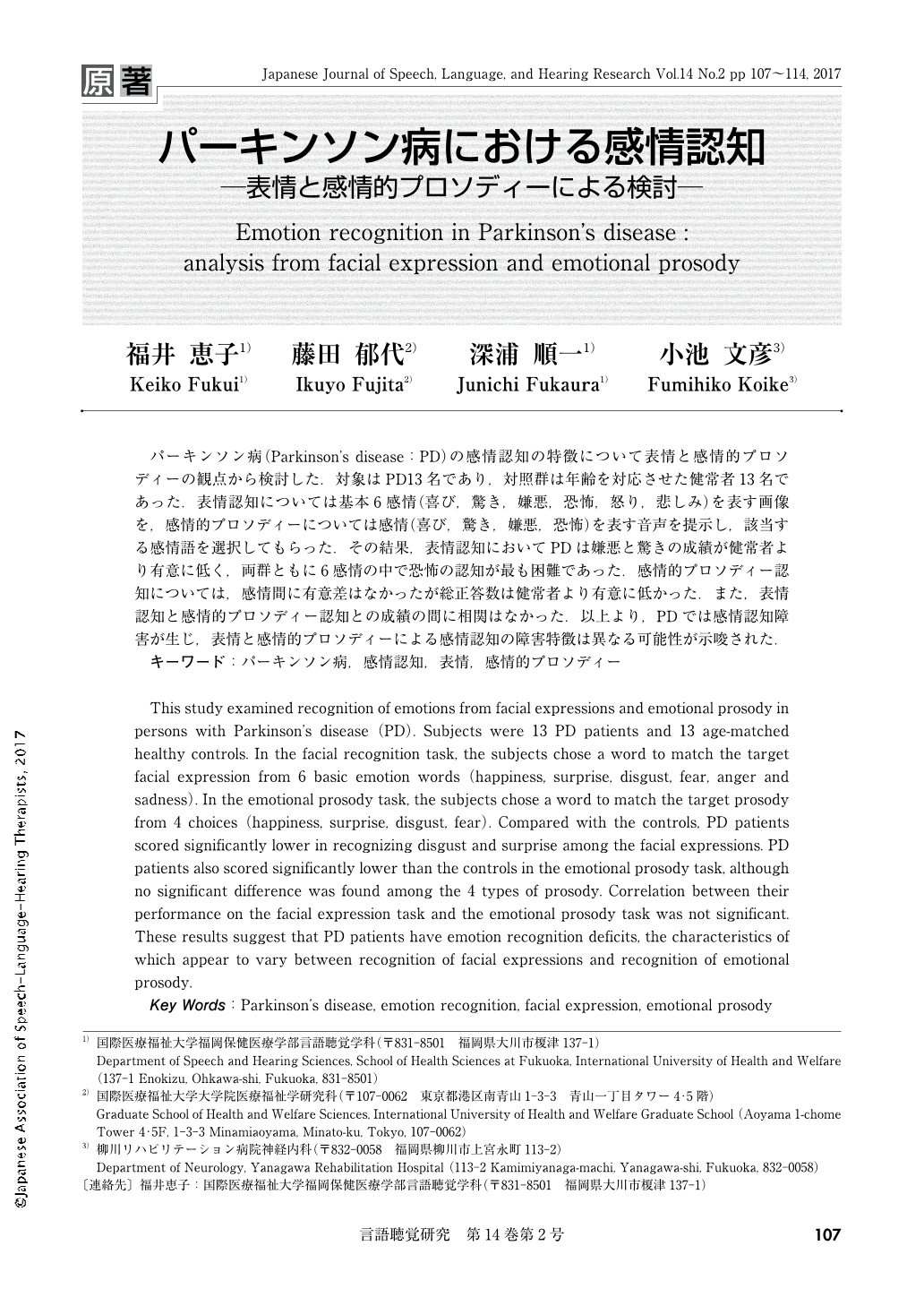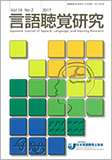Japanese
English
- 有料閲覧
- Abstract 文献概要
- 1ページ目 Look Inside
- 参考文献 Reference
パーキンソン病(Parkinson's disease:PD)の感情認知の特徴について表情と感情的プロソディーの観点から検討した.対象はPD13名であり,対照群は年齢を対応させた健常者13名であった.表情認知については基本6感情(喜び,驚き,嫌悪,恐怖,怒り,悲しみ)を表す画像を,感情的プロソディーについては感情(喜び,驚き,嫌悪,恐怖)を表す音声を提示し,該当する感情語を選択してもらった.その結果,表情認知においてPDは嫌悪と驚きの成績が健常者より有意に低く,両群ともに6感情の中で恐怖の認知が最も困難であった.感情的プロソディー認知については,感情間に有意差はなかったが総正答数は健常者より有意に低かった.また,表情認知と感情的プロソディー認知との成績の間に相関はなかった.以上より,PDでは感情認知障害が生じ,表情と感情的プロソディーによる感情認知の障害特徴は異なる可能性が示唆された.
This study examined recognition of emotions from facial expressions and emotional prosody in persons with Parkinson's disease (PD). Subjects were 13 PD patients and 13 age-matched healthy controls. In the facial recognition task, the subjects chose a word to match the target facial expression from 6 basic emotion words (happiness, surprise, disgust, fear, anger and sadness). In the emotional prosody task, the subjects chose a word to match the target prosody from 4 choices (happiness, surprise, disgust, fear). Compared with the controls, PD patients scored significantly lower in recognizing disgust and surprise among the facial expressions. PD patients also scored significantly lower than the controls in the emotional prosody task, although no significant difference was found among the 4 types of prosody. Correlation between their performance on the facial expression task and the emotional prosody task was not significant. These results suggest that PD patients have emotion recognition deficits, the characteristics of which appear to vary between recognition of facial expressions and recognition of emotional prosody.

Copyright © 2017, Japanese Association of Speech-Language-Hearing Therapists. All rights reserved.


